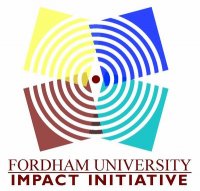A Focus on Faith
“Discovering Mormonism and its Role in Humanitarian Assistance”
On 27 February 2014, the United Nations DPI/NGO hosted a briefing, “Discovering Mormonism and its Role in Humanitarian Assistance”, as part of the annual “Focus on Faith Series”, implemented in 2008. Moderator Felipe Queipo informed the audience that the “series aims to provide a broader understanding of how different belief systems share common foundational principles such as tolerance, mutual respect for people different than ourselves, and a commitment to reconciliation and peaceful resolution of disputes. These principles are also shared and promoted by the United Nations: to engage in inter-faith dialogue provides an opportunity for greater understanding of religions, cultures, and civilizations”. Accordingly, the briefing certainly helped provide a broader and more educated understanding of The Church of Jesus Christ of Latter-day Saints, and their various humanitarian undertakings.
Interestingly, the UN conference room was completely filled, with guests pouring in throughout the entire briefing. The overwhelming attendance was continually noted by the speakers, and certainly acted as a testimony to both the appeal of faith-based humanitarian organizations, as well as the powerful member base of The Church of Jesus Christ of Latter-day Saints. Perhaps the latter is more accurate, in this specific case, for the majority of the attendees had some sort of affiliation with The Church of Jesus Christ of Latter-day Saints, more commonly known as the Mormon Church or LDS Church.
The briefing started with a short promotional video about the humanitarian efforts of The Church of Jesus Christ of Latter-day Saints, specifically the carried out by the LDS Charities, the humanitarian arm of The Church of Jesus Christ of Latter-day Saints. As one would expect, the video provided carefully choreographed testimonials of affected populations, but also testimonials of LDS volunteers. The carefully crafted video obviously shed a positive light on the mission of LDS Charities and the scope of their humanitarian efforts, both domestically as well as internationally.
Following the video, Mr. Ahman Corbitt, Director of the New York Office of Public and International Affairs for The Church of Jesus Christ of Latter-day Saints, began the discussion by giving the audience some background information on the Mormon Church, detailing its history and clarifying some typically false pre-conceived notions about the Church. However, there were two common themes of his remarks, which ultimately proved to be common themes of the entire briefing: family and religious freedom.
Ms. Sharon Eubank, Director of LDS Charities, echoed many of the same sentiments as Mr. Corbitt, especially regarding family and religious freedom. She emphasized: “The primary purpose of LDS Charities is to relieve suffering, foster self-reliance, and provide opportunities for service for families of all nationalities and religions.” These goals, or these “purposes”, are incredibly similar to goals of the United Nations. So, although the United Nations is a secular organization, the goals and projects of faith-based organizations, like LDS Charities, often align with the goals and projects of the United Nations.
Mr. John Colton, a current volunteer who directs various affairs of LDS Charities internationally, specifically mentioned how and where the goals of LDS Charities align with those of the United Nations, specifically the MDGs. He emphasized that both parties are keen to “eradicate extreme poverty and hunger”, “to reduce child mortality rates”, and “to foster a global partnership for development”. Mr. Colton also talked about specific global initiatives of the LDS Charities, showing how multi-faceted the work of the LDS Charities is.
Ultimately, although the briefing left the audience with pertinent and interesting information about the humanitarian work of The Church of Jesus Christ of Latter-day Saints, I think there are some unanswered questions to think about regarding faith-based humanitarian organizations. These questions arise from the UN Secretary General Ban Ki-moon quote that Ms. Eubank delivered during her remarks. In 2009, Mr. Ban Ki-moon said: “As a secular organization, the UN has no common religion, but like all major faiths, we too work on behalf of the disadvantaged and the vulnerable. I have long believed that when governments and civil societies work toward a common goal, transformational change is possible. Faiths and religions are an essential part of that equation.” I find it interesting that although Ms. Eubank gave abundant information and examples concerning the specific work and goals of LDS Charities, she never specifically elaborated on why “faiths and religions are an essential part” of “transformational change”. This, I think, is an important concept or question to think about.
Therefore, to conclude, think about these questions: Why do faith-based religious organizations provide such good humanitarian assistance? And, why do affected communities and populations receive such organizations so well? In other words, what is the power of being a faith-based organization?

If you would like more information about the Church of Jesus Christ of Latter-day Saints, LDS Charities, and their various humanitarian services, please visit:
http://ldscharities.org/?lang=eng
http://www.ldsphilanthropies.org
—-
Suzanne Arnold
Fordham University Impact Initiative Student Coordinator
Fordham University Youth Representative to the United Nations
